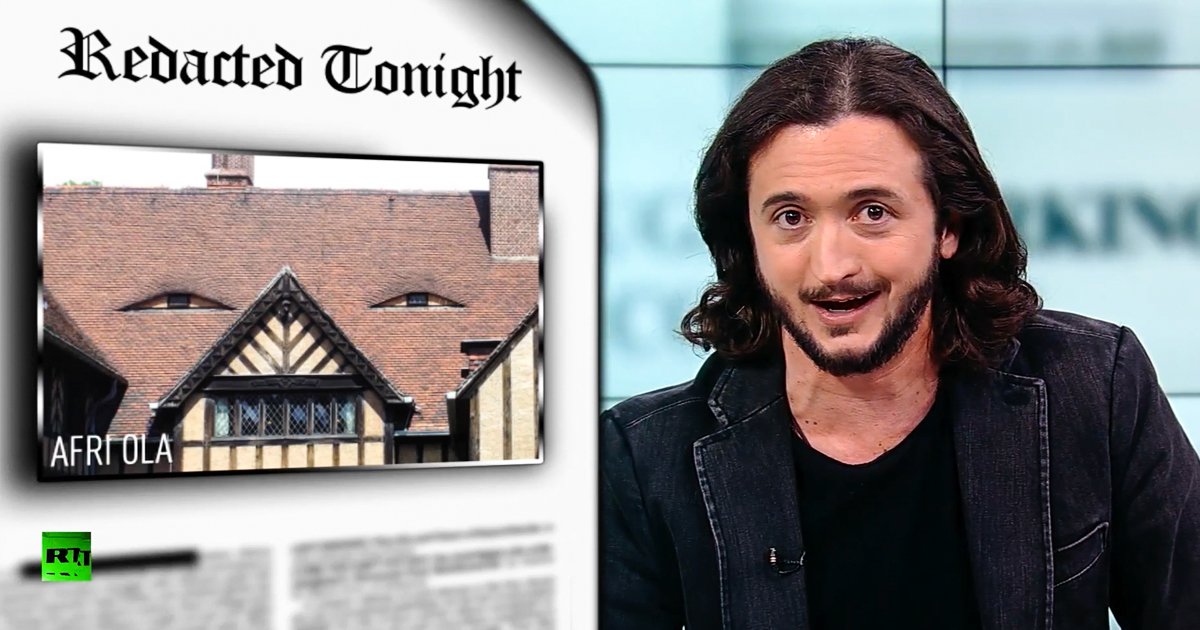To learn more about this topic, visit AL.Law
Via Boom Bust: A big pharma company looks to protect its patents by handing it to a Native American Tribes, America’s Lawyer Mike Papantonio talks to host Lindsay France about what drug companies are doing.
Transcript:
Lindsay France: Sales of eye inflammation medication Restasis earned drug manufacturer Allergan $1.4 billion last year. Recently, eyebrows were raised when it transferred the patent to St. Regis Mohawk Tribe in upstate New York. It took advantage of an American tribal sovereignty law to protect its patent, and prevent generic makers of the Restasis drug from getting approved for sale. Well, now a Texas district court judge has ruled against Allergan’s actions in trying to extend its patent stating, “It’s not entitled to renewed patent rights.” Mike Papantonio, the host of America’s Lawyer, joined me earlier to explain the sovereignty issue.
Mike Papantonio: Well, here’s what happens. Drug companies get to hold a patent for 10 years before they lose their monopoly, and then cheaper generic versions get to enter the market. They tell us, most of the time, that they need those 10 years to recoup the cost of research and development, but that’s a total lie. Most drug makers make all their money back within about two years. 75% of the costs are actually just marketing costs that big pharma wants us to pay.
They want to charge us these ridiculous amounts of money for prescriptions. And they want to say, “Well, gee wiz, this is all about research and development.” It’s not. It’s about marketing. It’s about the idea in two years, they’ve got all their money back. And most of the time, people don’t understand. Government pays for most of the research. Drug companies spend close to $7 billion a year on stock buyouts to make their shareholders even wealthier. And they do that, Lindsay, during a time when the federal government … This is what really ought to make you angry. Federal government funds close to 50% of all the research and development that a company like Allergan ends up paying.
Lindsay France: Let’s talk about this patent troll issue that Allergan claims. What do you think of the generic makers moving in on a name brand, in name brand territory, and having sometimes a shorter FDA approval period or governmental approval period for this patent? Allergan says, “It’s a troll issue.” They say, “This deal is a sophisticated opportunity to strengthen the defense of our Restasis intellectual property.” What do you think of this argument?
Mike Papantonio: Yeah. Yeah, well, look. It’s nonsense. Allergan is scamming the system again. It’s just the latest in a long line of schemes hatched by drug companies in order to prevent generic drugs from entering the market. In the past, they’ve tried things like tweaking their formula a little bit in order to claim a new patent. But this move of giving the patent to a group with sovereign immunity is a whole new level of disgusting. Let’s not forget. This is what you have to understand. Trends follow companies. Let’s not forget that Allergan has a history of manipulation.
Earlier this year, the company settled a whistleblower lawsuit for $13 million after doctors came forward and clearly showed that the company was actually involved in kickbacks to doctors for prescribing their medication, the drug that they’re now trying to hand over to native tribes to protect it there. Look, I got to tell you something. I’ve had 35 years going to war with companies like Allergan. These are the folks that park their money off-shore, so they don’t have to pay taxes. They get the government to pay for the research and development.
They have all types of scams where they run, they go to universities to have professors write phonied-up literature for them. Look. This is a drug company, Lindsay, that pulls in about $1.5 billion a year, and they’re going to give the native group that they’re talking about, about $15 million. About 1% as long as they don’t lose the patent.
Lindsay France: Yeah. Yep. Right. Well, people I talk to in tribal law, say that this is a classic case of what is commonly referred to as Rent-A-Tribe. You go, you find a sovereign tribe, and you basically pay them to hold onto your business for you. And it could actually put into danger tribal sovereignty, if this isn’t controlled within the tribe, and now we’ve got lawmakers saying, “We want to close this loophole.” How dangerous is this for tribal sovereignty in our country?
Mike Papantonio: Well, it’s terrible. Look. Drug companies understand, for example, the financial problems that plague native tribes all over the country, so they’re using that to manipulate those tribes. Look. Native Americans have been nearly completely left out of any kind of economic recovery in the last few years, so this company’s taking advantage of that. Native tribes, you have unemployment levels nearly double that of the overall population. They have a higher poverty rate. They lag behind in education. More than one in four Native people live in total poverty.
Their labor force participation is about somewhere, I think, around 60%, the lowest of all race groups. Nearly eight percent of Native Americans have no access to clean water or basic sanitation, so here. That’s where Allergan says, “Oh, wow. We have an area of total despair. Let us now take advantage of the area of total despair.” Lindsay, it’s the same thing that we see these companies doing with opioids. “Let’s go in parts of the country where there’s total despair, where they have nothing to gain,” and so the opioid industry’s in there for that reason. This company is in there simply because they can take advantage of all the misfortune that these tribes are facing.
And you’re right. It does create a problem to where their sovereignty to say, “We are an entity. Our reservation is an entity that doesn’t have to play by all the federal rules because we have our own tribal law.” That is at risk. This company doesn’t care about that. All they care about is making more money. That’s the ugly part of a story like this. This company has a history of that, and they’ll continue that history until somebody really slaps them down. Somebody has got to slap this company down for what they’re doing here.
Lindsay France: Well, the Mohawks claim, “It’s about diversifying their income.” As you pointed out, it’s between $14 to $15 million, a paltry sum, considering what the drug companies make on Restasis, just one drug that Allergan has. Do you feel like it would behoove the Mohawks and tribes like the Mohawks to regulate this from within? Because it seems dangerous that, especially [inaudible 00:06:15] on the hill who want eat in on tribal sovereignty, to find this as the perfect excuse of taking that away from eating at it?
Mike Papantonio: Well, right now, for example. There’s a case going on where we’re claiming that the Indian tribes have their own law, to be able to go after the distributors of opioids, okay. Because they ought to be able to sue them under their schematics of law, not the feds.
Lindsay France: Right.
Mike Papantonio: The feds are always trying to take away from the reservation, take away from that right. And so that’s what we see here, is that conflict.
Lindsay France: Well, and who would know better than you? Thank you so much for weighing in on this for us. Mike Papantonio, the host of America’s Lawyer.
Mike Papantonio: Thank you.



